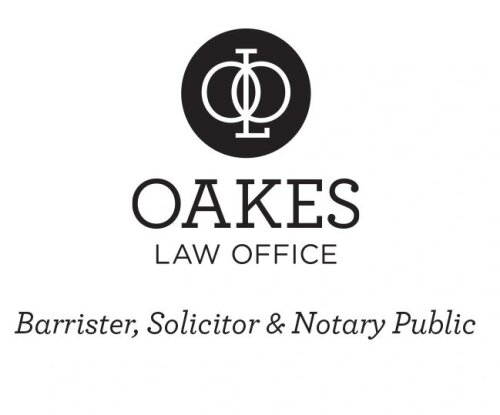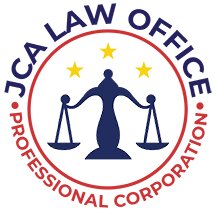Best Elder Law Lawyers in Toronto
Share your needs with us, get contacted by law firms.
Free. Takes 2 min.
List of the best lawyers in Toronto, Canada
About Elder Law in Toronto, Canada
Elder Law in Toronto, Canada is a specialized legal field that focuses on the unique needs and rights of elderly individuals. It covers a wide range of legal issues such as estate planning, long-term care, retirement benefits, healthcare decision making, elder abuse, and more. This branch of law aims to protect the rights, interests, and well-being of older adults in Toronto.
Why You May Need a Lawyer
There are several situations where you may need the assistance of a lawyer specializing in Elder Law:
- If you or your loved one needs help with estate planning or creating a will.
- If you are considering nursing home or assisted living arrangements.
- If you need guidance on healthcare decision making, powers of attorney, or advance directives.
- If you suspect elder abuse, financial exploitation, or neglect.
- If you require legal representation in disputes related to pensions, insurance, or other retirement benefits.
Local Laws Overview
In Toronto, Canada, there are specific laws and regulations that pertain to Elder Law:
- The Health Care Consent Act outlines the legal framework for consent to treatment and decision making for incapable individuals.
- The Long-Term Care Homes Act establishes standards and guidelines for long-term care facilities, ensuring the safety and well-being of elderly residents.
- The Ontario Human Rights Code protects individuals from discrimination based on age and disability, providing a legal avenue to address elder abuse or mistreatment.
- The Substitute Decisions Act governs the appointment of substitute decision-makers for incapable adults, enabling designated individuals to make decisions on behalf of an elderly person.
Frequently Asked Questions
1. What is the difference between a power of attorney and a guardian?
A power of attorney is a legal document that gives someone the authority to make financial or personal decisions for another person, whereas a guardian is a court-appointed role with more substantial decision-making powers.
2. How can I prevent elder abuse?
Preventing elder abuse involves being vigilant, maintaining open communication, having a trusted support network, and seeking legal recourse if needed. Familiarize yourself with the signs of abuse and stay connected with elderly family members or friends.
3. How do I create a legally binding will?
To create a legally binding will, you should consult a lawyer experienced in estate planning and Elder Law. They will guide you through the process, ensuring all necessary elements are included and that it aligns with Toronto's specific legal requirements.
4. Can I challenge a will if I believe it is invalid?
Yes, it is possible to challenge a will if you have valid grounds to believe it is invalid, such as undue influence, lack of testamentary capacity, fraud, or improper execution. Consulting an Elder Law lawyer is crucial to navigate this complex legal process.
5. Are there financial assistance programs available for seniors in Toronto?
Yes, there are various financial assistance programs available for seniors in Toronto, such as Old Age Security (OAS), Guaranteed Income Supplement (GIS), and the Ontario Drug Benefit Program. Consulting a lawyer or reaching out to local governmental bodies can provide more information specific to your situation.
Additional Resources
Here are some helpful resources and organizations related to Elder Law in Toronto, Canada:
- Elder Abuse Prevention Ontario: Website: https://www.eapon.ca
- Advocacy Centre for the Elderly (ACE): Website: http://www.advocacycentreelderly.org
- Ontario Ministry for Seniors and Accessibility: Website: https://www.ontario.ca/page/ministry-seniors-accessibility
- Ontario Bar Association - Elder Law Section: Website: https://www.oba.org/ElderLaw/
Next Steps
If you find yourself in need of legal assistance regarding Elder Law in Toronto, Canada, consider taking the following steps:
- Identify your specific legal concerns and gather relevant documents.
- Research and seek recommendations for experienced Elder Law lawyers in Toronto.
- Arrange consultations with potential lawyers to discuss your situation and assess their expertise in Elder Law.
- Select a lawyer who is knowledgeable, trustworthy, and someone you feel comfortable working with.
- Ensure you clearly understand the lawyer's fees, scope of work, and anticipated outcomes before proceeding.
Lawzana helps you find the best lawyers and law firms in Toronto through a curated and pre-screened list of qualified legal professionals. Our platform offers rankings and detailed profiles of attorneys and law firms, allowing you to compare based on practice areas, including Elder Law, experience, and client feedback.
Each profile includes a description of the firm's areas of practice, client reviews, team members and partners, year of establishment, spoken languages, office locations, contact information, social media presence, and any published articles or resources. Most firms on our platform speak English and are experienced in both local and international legal matters.
Get a quote from top-rated law firms in Toronto, Canada — quickly, securely, and without unnecessary hassle.
Disclaimer:
The information provided on this page is for general informational purposes only and does not constitute legal advice. While we strive to ensure the accuracy and relevance of the content, legal information may change over time, and interpretations of the law can vary. You should always consult with a qualified legal professional for advice specific to your situation.
We disclaim all liability for actions taken or not taken based on the content of this page. If you believe any information is incorrect or outdated, please contact us, and we will review and update it where appropriate.














